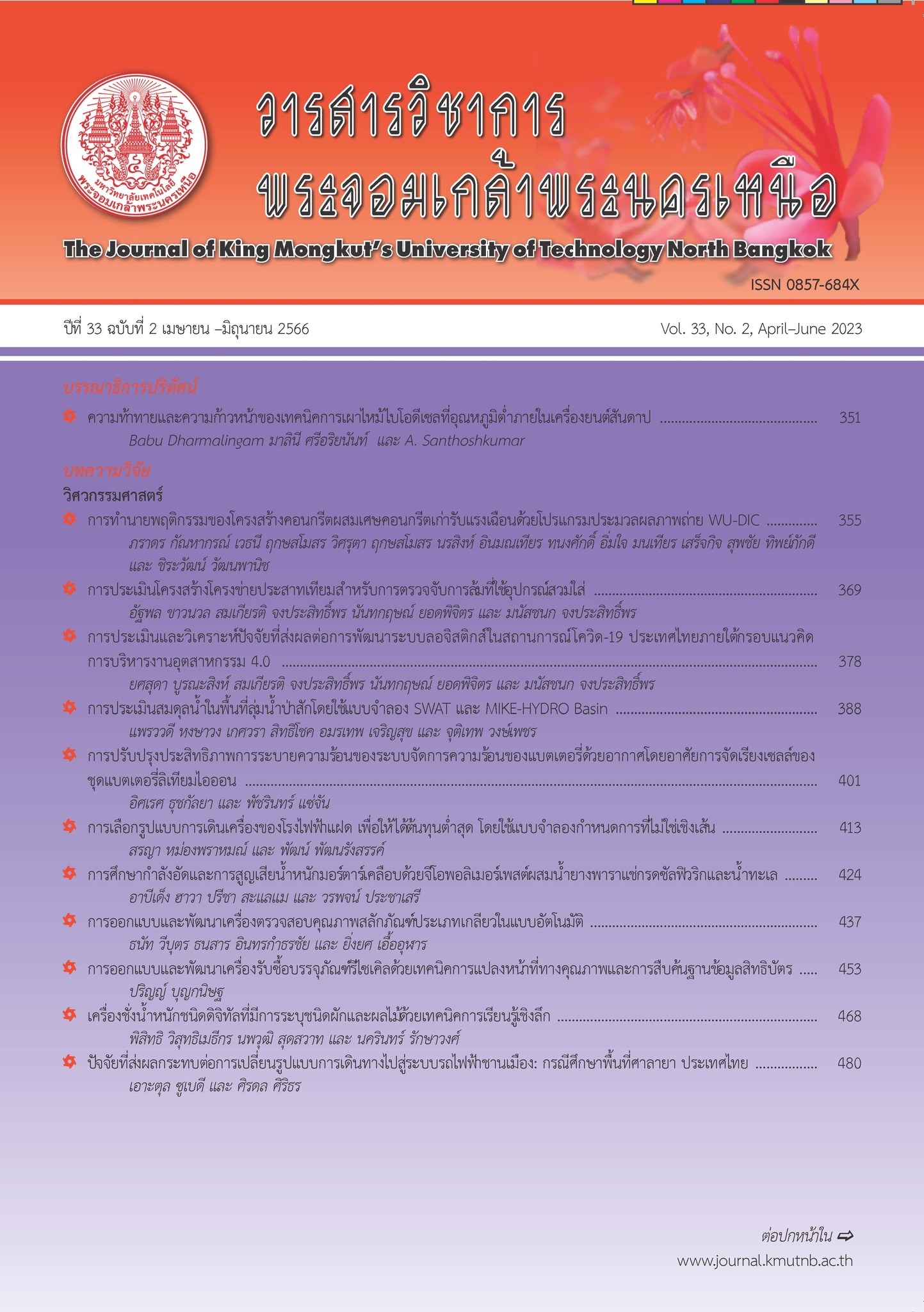A Genetic Algorithm Approach for Production Capacity Planning Depends on Workers’ Expertise with Consideration of Learning and Forgetting
Main Article Content
Abstract
Workforce is one of the factors that should be considered in production planning. The special characteristics of workforce include learning and forgetting corresponding to experience and frequency of performing the production activity affecting capability of workers and total production capacity. The production planning and worker assignment of multiple products with time-varying demand are complicated for decision-making, especially for human planners. This research proposed the use of learning and forgetting rates to determine workforce capacity for production planning and work assignment. A suitable assignment by considering the worker’s expertise can reduce production time or increase production capacity when compared with the fixed assignment policy. A genetic algorithm was used to find the production plan with maximum profit. The parameters of genetic algorithm were tested in 4 models, i.e. C4M3, C4M7, C8M3, and C8M7. From the results showed that the proposed genetic algorithm approach had better performance than the fixed assignment policy. The suitable parameter of the genetic algorithm is C8M3 providing high performance in finding the best solution with less calculating time.
Article Details

This work is licensed under a Creative Commons Attribution-NonCommercial-NoDerivatives 4.0 International License.
The articles published are the opinion of the author only. The author is responsible for any legal consequences. That may arise from that article.
References
A. Cheraghalikhani, F. Khoshalhan, and H. Mokhtari, “Aggregate production planning: A literature review and future research directions,” International Journal of Industrial Engineering Computations, vol. 10, no. 2, pp. 309–330, 2019.
L. E. Yelle, “The learning curve: Historical review and comprehensive survey,” Decision Sciences, vol. 10, no. 2, pp. 302–328, 1979.
M. Y. Jaber and M. Bonney, “A comparative study of learning curves with forgetting,” Applied Mathematical Modelling, vol. 21, no. 8, pp. 523–531, 1997.
A. B. Badiru, Handbook of Industrial and Systems Engineering, 2nd ed. Boca Raton: CRC Press, 2013, pp. (30-1)-(30-27).
P. Kampkötter, C. Harbring, and D. Sliwka, “Job rotation and employee performance – evidence from a longitudinal study in the financial services industry,” The International Journal of Human Resource Management, vol. 29, no. 10, pp. 1709–1735, 2016.
Y. Demir and S. K. İşleyen, “An effective genetic algorithm for flexible job-shop scheduling with overlapping in operations,” International Journal of Production Research, vol. 52, no. 13, pp. 3905–3921, 2014.
W. Xu, Y. Hu, W. Luo, L. Wang, and R. Wu, “A multiobjective scheduling method for distributed and flexible job shop based on hybrid genetic algorithm and tabu search considering operation outsourcing and carbon emission,” Computers & Industrial Engineering, vol. 157, 2021, Art. no. 107318.
R. Chakrabortty and M. Hasin, “Solving an aggregate production planning problem by using multi-objective genetic algorithm (MOGA) approach,” International Journal of Industrial Engineering Computations, vol. 4, no. 1, pp. 1–12, 2013.
G. J. Hahn and M. Brandenburg, “A sustainable aggregate production planning model for the chemical process industry,” Computers & Operations Research, vol, 94, pp. 154–168, 2017.
A. Chaimanee and W. Supithak, “Flexible flow shop scheduling problem with sequence dependent setup time under just-in-time philosophy,” The Journal of KMUTNB, vol. 25, no. 2, pp. 219–231, 2015 (in Thai).
C. Liu, J. Wang, and J. Y. Leung, “Worker assignment and production planning with learning and forgetting in manufacturing cells by hybrid bacteria foraging algorithm,” Computers & Industrial Engineering, vol. 96, pp. 162–179, 2016.
T. Kataoka, K. Morikawa, and K. Takahashi, “Strategic human resource management simulation considering work elements, skills, learning and forgetting,” Procedia Manufacturing, vol. 39, pp. 1633–1640, 2019.

